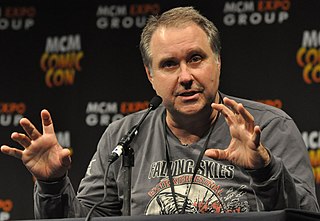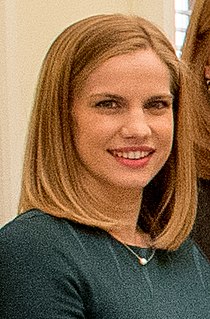A Quote by Gus Van Sant
I don't usually direct actors in the classic sense of that word. Instead, I try to remind the characters before the shoot what's going on in a very simple way. I then watch them, their inventions as actors, approving or not approving what they're doing.
Related Quotes
I do extensive storyboards so people can get a sense of what we're doing, and what the attitude and tone is. I work a lot with the actors. I like to go to sets or locations with them before shooting so that they know what they'll be doing on the day. I have found actors really do like to know about blocking, etc., before the shoot day comes.
Normally, filmmakers would just write a script and cast people to act as certain characters in the story. But in my way of doing things, I have the actors in my mind already, so I'm trying to borrow something that's unique to them. The characters have a very natural connection to the actors themselves.
In this type of cinema, whether working with actors or non-actors, as much as you do direct them, if you allow yourself to be directed by them, then the end result will be much more pleasing. The real and individual strengths of the actors is allowed to be expressed and is something that does affect the audience very deeply.
When you're working on a television show with actors, what you hope you're doing is playing jazz with them all the time. You see what they're giving you, so you try to write back to that, and then they play with that, and you get a sense of what is going on. That's just a natural way in which TV series usually work.
Well, actors get very frustrated with giving control to other people. They have their own ideas and wants for their characters. Warren Beatty once told me that he thought actors ended up directing out of frustration. If you have a strong sense of how to communicate a film, you should direct. The problem is that it is a huge commitment. I'd rather direct a play than a film due to the time. A movie can tie you up for a year or more.
The way I see the job, my definition of it, is to create characters to the best of your ability and then fit into what's trying to be accomplished in the general framework of the film. I think that's whether you're doing this- even if you're doing musical theater. That's what I think an actors job is. I don't know. I like to think what an actors job is is to create characters.
Actors, I think, are all the same. Both Korean actors and American actors are all very sensitive people, and they are all curious to know what the director thinks of them and how they are evaluated, and they try to satisfy the director. And they like it if you listen carefully to their opinions and accept them.
I try and shoot as often as I can, I cross shoot. I have at least two cameras rolling at the same time. So I'll have two actors or two sets of actors at a time so everybody's basically on camera. So when they improvise we have everybody's coverage. And you can then go in the editing room and find the energy still stays there.






































